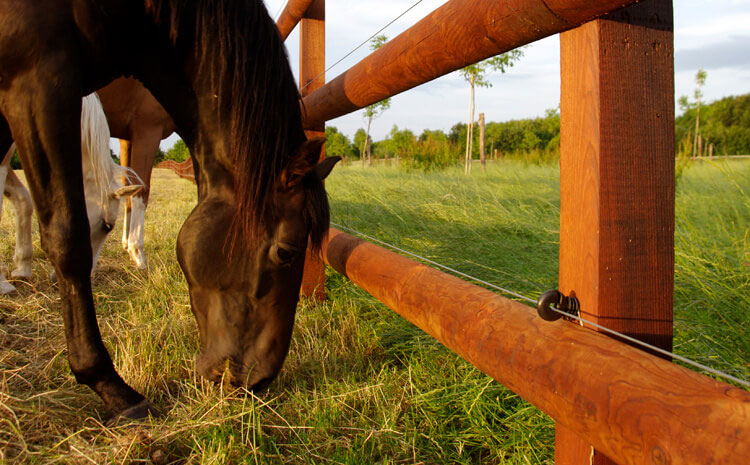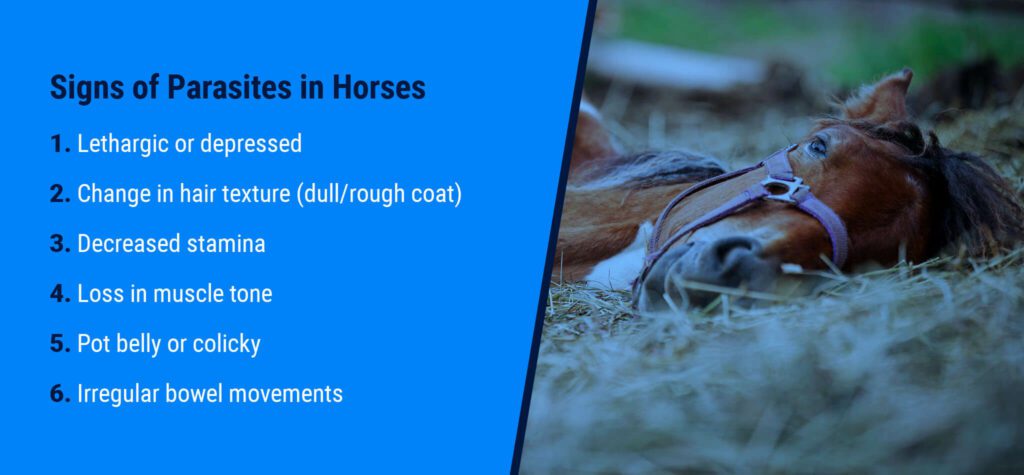Horse Parasite Signs and Treatments

While some horse health issues are easy to spot. Horse parasites can often go undetected which is what makes them even more dangerous. Parasites can cause extensive internal damage to your horse’s digestive system before you even realize it. Understanding the signs and symptoms of parasites in your horse could save your horse’s life.
Parasite facts
There are hundreds of parasites that can infect your horse. However, the three main types of horse parasites are stongyles, tapeworms, and roundworms. A parasite starts its lifecycle as an egg then matures to larvae before becoming a mature worm. Most frequently horses ingest parasites while grazing and the parasites mature in the horse’s intestine. Many parasites stay in the stomach or intestine of the horse. However, some species of parasites will attack other muscles and organs in the horse.
Common Signs of Parasites

The reason parasites can be so deadly is that a horse can seem healthy while being infected. However, there are some signs that even a horse that seems relatively healthy may be infected with parasites.
Here are some signs that your horse may have parasites:
- They seem lethargic or depressed compared to normal.
- You notice a change in their hair texture. Having a parasite can lead a horse to have a dull or rough coat.
- They have decreased stamina in comparison to normal. If you notice that your horse can no longer run or be active for a long time. They may be experiencing parasites.
- Loss of physical conditioning. Are you noticing a loss in your horse’s muscle tone? This could be a sign that your horse has a parasite.
Some of the more recognizable symptoms include:
- Your horse has a pot belly. This is a common symptom, especially in young horses.
- Your horse is colicky.
- Your horse has irregular bowel movements, especially diarrhea.
Treatment for Parasites
If you believe your horse has parasites it is extremely important to get them help right away. You should seek the advice of a veterinarian immediately to confirm that your horse has parasites.
The common treatment for parasites is dewormers. Some parasites are immune to certain types of dewormers, so it is important to discuss your options and ongoing treatment with your veterinarian. Once resolved, introducing natural supplements to their diet is one step closer to improving their overall health and taking steps to reduce the reoccurrence of parasites.
page updated 2/22/18
